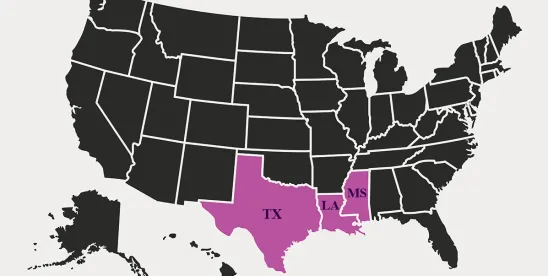On June 5, 2024, the Fifth Circuit Court of Appeals (Fifth Circuit) vacated the U.S. Securities and Exchange Commission’s (SEC) new Private Funds Adviser Rules, adopted in August 2023 (Final Rules). The Court vacated the Final Rules in their entirety, on the grounds that the SEC lacked statutory authority to adopt the Final Rules. Currently, the Fifth Circuit’s decision eliminates any obligation on behalf of private fund advisers to comply with the Final Rules. It remains to be seen whether the SEC will request further rehearing by the Fifth Circuit or appeal the decision to the Supreme Court. The SEC has a mixed record on appealing decisions vacating its prior rulemakings. For further information regarding the Final Rules, see Nelson Mullins - SEC Adopts Its New Private Funds Adviser Rules.
The Final Rules were challenged on four grounds: (1) the SEC exceeded its statutory authority, (2) the Final Rules were not a logical outgrowth of the SEC’s proposed rulemaking, (3) the Final Rules adopted were arbitrary and capricious, and (4) the SEC failed to adequately consider the Rules’ economic impact. The SEC maintained that it had statutory authority under Section 211(h) of the Investment Advisers Act of 1940 (the “Advisers Act”), as expanded by the Dodd-Frank Wall Street Reform and Consumer Protection Act of 2010 (the “Dodd-Frank Act”) and Section 206(4) of the Advisers Act (which the SEC has regularly used for other Advisers Act rulemakings to the extent necessary for fraud prevention). However, despite the SEC’s argument, the Fifth Circuit held that the SEC exceed its statutory authority in enacting the Final Rules and vacated the Final Rules in their entirety. Accordingly, the Fifth Circuit did not address the remaining grounds of the challenge.
In reaching its decision, the Fifth Circuit reasoned that the SEC does not have the ability to regulate private funds under Section 211(h) of the Advisers Act (promulgated under the Dodd–Frank Act) because Section 211(h) refers to “investors” in certain instances demonstrating that Congress intended for Section 211(h) to regulate interactions between private fund sponsors and their investors. The Fifth Circuit rejected the SEC’s argument, holding that because Congress enacted the Advisers Act in tandem with the Investment Company Act of 1940 (the “Investment Company Act”), it had originally intended the Investment Company Act to be a sister statute to the Advisers Act for the purpose of regulating investment companies and private funds. In enacting the Dodd-Frank Act, the Fifth Circuit argued Congress did not intend to expand the SEC’s statutory authority under the Advisers Act to private funds, because such expansion would conflict with the existing regulatory scheme of regulating private funds under the Investment Company Act. Therefore, the Fifth Circuit ruled that Section 211(h) was devoted solely to the protection of retail customers notwithstanding references to “investors” in certain instances.
Next, the Fifth Circuit rejected the SEC’s alternative argument that the SEC could rely on Section 206(4) of the Advisers Act for certain portions of the Final Rules. Section 206(4) of the Advisers Act permits SEC to “define, and prescribe means reasonably designed to prevent, such acts, practices, and courses of business as are fraudulent, deceptive, or manipulative” regarding “any investment adviser” (including those advising private funds): 15 U.S. Code § 80b–6(4). The SEC argued that certain provisions of the Final Rules are “reasonably designated” to prevent fraud. Notably the SEC has regularly relied on this authority for other Advisers Act rulemakings affecting private funds advisers, including the SEC’s marketing rule. However, the Fifth Circuit held here that the SEC has failed to establish a sufficient “rational connection” between potential fraud and the Final Rules. Specifically, the Fifth Circuit noted that complying with funds’ governing documents does not constitute fraud. Moreover, the SEC has only observed misconduct by about 0.05% of private funds’ advisers, thus further precluding a “rational connection” between potential fraud and the Final Rules. Because the Fifth Circuit held that the SEC has exceed its statutory authority in enacting the Final Rules, it has vacated the Final Rules in their entirety.
As of now, the Fifth Circuit’s decision to vacate the Final Rules eliminates any responsibility on behalf of private fund advisers to comply with the Final Rules. The SEC may yet request further rehearing by the Fifth Circuit or appeal the decision to the Supreme Court. The SEC may also continue to use examination or enforcement actions on a case-by-case basis to pursue some of the concerns it sought to address in the Final Rules. Additionally, a growing number of investors in private funds, being on notice of the Final Rules, are likely to demand at least some of the Final Rules’ provisions in connection with their investments.





 />i
/>i

